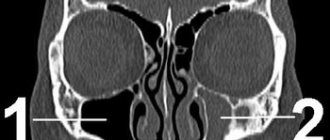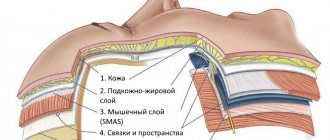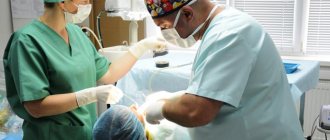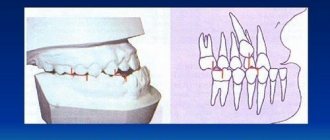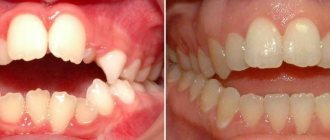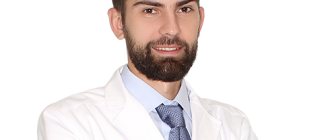An oral and maxillofacial surgeon is a doctor who specializes in the surgical treatment of various diseases of the face, neck and oral cavity. By the way, in 2022, the ProfGid career guidance center developed an accurate career guidance test. He himself will tell you which professions are suitable for you, and give an opinion about your personality type and intelligence.
Who is an oral and maxillofacial surgeon?
This specialist specializes in the surgical treatment of congenital and acquired pathologies of the jaw, face and neck. It not only restores the damaged functions of anatomical structures, but also eliminates cosmetic defects, that is, it returns the previous appearance.
However, he should not be confused with a plastic surgeon. The latter treats healthy people, he works on aesthetics, improves natural beauty. But the maxillofacial surgeon solves precisely medical problems. Its main goal is to improve health and restore the appearance that was before injury or illness. It primarily works with bone rather than soft tissue.
The doctor not only operates, he is engaged in postoperative treatment and rehabilitation of the patient, accompanying him until full recovery. Responsibilities of an oral and maxillofacial surgeon:
- interview and examination of the patient;
- conducting a diagnostic examination, including x-rays, CT scans, laboratory tests, allergy tests;
- choosing the most optimal treatment method;
- performing surgery;
- prevention of postoperative complications.
Description of the profession
Although this profession is directly related to dentistry, it goes far beyond it. There are several areas of maxillofacial surgery. Among them are surgical care for injuries, reconstructive surgery of the face, surgical care for anomalies and deformations of the tissues of the maxillofacial area.
How does a maxillofacial surgeon differ from a plastic surgeon?
The difference, firstly, is in the purpose of work. If a plastic surgeon works with healthy people, then a maxillofacial surgeon solves medical problems. His main task is not the realization of dreams of an ideal appearance, but the restoration of health. And while working on aesthetics, he does not improve nature, but restores and reconstructs what was.
Secondly, a plastic surgeon works mainly with soft tissues, while maxillofacial surgery works with the facial skeleton.
Fortunately, modern medicine makes it possible to correct even very complex injuries and deformations, which until recently were considered hopeless: equipment is being improved year after year, new materials and developments in the field of microsurgery appear. Even after very serious injuries, there is a chance that the surgeon will be able to restore the face without leaving even traces of what happened.
Emergency and planned patients are admitted to the maxillofacial surgeon. Planned operations are performed in case of tumors, congenital anomalies, as well as inflammation if they have gone too far.
And emergency patients are most often people injured in accidents, accidents, terrorist attacks, etc. Disasters do not take into account the time of day and night, which means that even on the night shift, the surgeon must be prepared for the arrival of severe patients. Inflammation that has reached the purulent stage also requires emergency measures. That’s why sometimes such patients are brought by ambulance.
If a person has a severe facial injury, it is very difficult to determine by eye what exactly is damaged and how. In this case, the patient himself may be unconscious or simply not be able to speak. The surgeon carefully examines the wounds and prescribes x-rays or tomography of the skull. With their help, he determines which bones need to be restored and how.
In other cases, the patient can tell himself what worries him and where it hurts.
What diseases does an oral and maxillofacial surgeon treat?
Its competence includes the elimination of congenital and acquired defects, diseases of inflammatory, traumatic or tumor origin that are not amenable to conservative therapy. These include:
- injuries of the facial skeleton, teeth;
- pathologies of the salivary glands;
- cleft palate, cleft lip;
- dystopic, impacted and supernumerary teeth;
- small lower jaw;
- diseases of the mandibular joint: arthritis, arthrosis, articular disc dysfunction;
- inflammatory processes in the jaw area, facial skeleton: abscesses, phlegmon;
- osteomyelitis, periostitis, periodontitis;
- odontogenic benign and malignant tumors: dental cyst, odontoma, adamantinoma and others;
- malocclusion that cannot be corrected with orthopedic treatment.
The doctor performs planned and emergency operations. The latter are required for patients injured in road accidents, accidents, or military operations. Elective surgeries are more often prescribed for tumors, inflammatory processes and congenital anomalies.
What types of procedures are classified as maxillofacial surgery?
The activities of a maxillofacial surgeon can be divided into two main areas according to the criterion of urgency.
First, he surgically rids patients of birth defects and provides routine treatment. Preliminary preparation for such operations, including examinations, takes some time. Such “non-urgent” problems include many dental diseases, congenital defects, tumor formations, etc. As for congenital pathologies (“cleft palate”, “cleft lip”, tongue aplasia), they should be eliminated in early childhood during avoiding the development of psychological problems in the child.
Secondly, oral and maxillofacial surgery deals with emergency cases when, as a result of injury, accident or accident, a person acquires a defect in the face, neck or jaw, and when it is necessary to restore vital functions (respiratory, chewing, speech) and correct appearance through surgical intervention .
The scope of practice of an oral and maxillofacial surgeon includes procedures such as:
- taking anamnesis;
- external examination of the patient;
- conducting diagnostic studies and making a final diagnosis;
- surgical intervention;
- monitoring the healing process;
- carrying out preventive measures to avoid complications, etc.
Among the most popular surgical procedures in the maxillofacial area are:
- rhinoplasty;
- otoplasty;
- blepharoplasty;
- maxillary sinusotomy;
- prosthetics;
- osteosynthesis;
- removal of various tumors;
- circular facelift;
- contour plastic surgery.
During surgery, surgeons use the most modern equipment and materials, making operations less traumatic. This shortens the recovery period and helps reduce the likelihood of noticeable tissue scarring after surgery.
Requirements
The specialist must receive a higher medical education in the specialty “maxillofacial surgery”. During the training he acquires the following theoretical and practical knowledge:
- studies anatomy and physiology, especially the maxillofacial region and neck;
- is trained in diagnostic methods;
- studies all maxillofacial pathologies;
- learns to perform operations: open abscesses and phlegmons, excise tumors, perform osteosynthesis;
- studies primary surgical treatment and much more.
The main treatment methods of a maxillofacial surgeon are surgical. He must master them thoroughly, use minimally invasive technologies and modern materials to avoid the formation of scars. The outcome of treatment and demand among patients depend on his competence.
To become a good oral and maxillofacial surgeon, you need not only experience, but also constant training. You can improve your knowledge and skills, as well as receive the appropriate supporting document, through advanced training courses at the Academy of Professional Standards.
The work of an oral and maxillofacial surgeon is the struggle for a new quality of life for the patient
Sergei Ivanov talks about the work of the department and department of maxillofacial surgery at Clinical Hospital No. 4 of Sechenov University and why we have the right to expect miracles from maxillofacial surgeons.
Sergey Yurievich Ivanov Head of the Department of Sechenov University, doctor - maxillofacial surgeon, head of the maxillofacial surgery department of Clinical Hospital No. 4. In 1979 he graduated from the Moscow Medical Institute named after. ON THE. Semashko. From 1987 to 1996, he served in the Ministry of Internal Affairs as deputy head of the department of maxillofacial surgery and dentistry at the Central Hospital, chief dentist of the Ministry of Internal Affairs of the Russian Federation, as part of the UN Peacekeeping Forces. Recipient of the Order “For Personal Courage”, awarded the United Nations Medal “In the Service of Peace”. He worked in the UK as a senior physician in the department of maxillofacial surgery and dental surgery at the Bristol City Hospital. Member of the British Association of Oral and Maxillofacial Surgeons and the European Association of Craniomaxillofacial Surgeons. Since 1996 he has been working in Russian universities and clinics. President of the Dental Association of Dental and Maxillofacial Surgeons of Russia, Corresponding Member of the Russian Academy of Sciences, Doctor of Medical Sciences, Professor.
Duty officers in Moscow
In 2016, at the invitation of the rector Pyotr Glybochko, I came to the leading medical university in the country - Sechenov University. Here there is an opportunity to implement scientific and organizational ideas at a high level, to bring the department of maxillofacial surgery to a leading position. We have deployed a department of maxillofacial surgery and two areas of dental care on the basis of Clinical Hospital No. 4: a hospital department and a day hospital. We accept urgent and planned patients. Urgent - emergency care - this is our duty in Moscow and the Moscow region three days a week. All the most complex cases of maxillofacial surgery, head and neck injuries: cellulitis, fractures, car accidents, injuries and many other injuries are brought to us, on the street. Dovatora, 15.
We work like in war: you never know in advance how the duty will go and how serious the patients will be. This is very valuable for training young personnel. Professional excellence is achieved through everyday, difficult, but extremely necessary work. In addition to urgent care, we have launched the provision of high-tech dental care: we were allocated 90 quotas, but in the end we sold almost twice as many - 170; we provide paid services to planned and emergency patients under compulsory medical insurance and voluntary medical insurance.
Should we expect miracles in maxillofacial surgery?
Interesting fact: our department of maxillofacial surgery is one of the first in Russia and was created on the initiative of Nikolai Vasilyevich Sklifosovsky. In 1885, the university allocated space for head and neck surgeons. Today the department is engaged in maxillofacial surgery, surgical dentistry and implantology, reconstructive and plastic surgery of the maxillofacial region, and treatment of patients with vascular diseases. It is important to note that we are seen and heard - we receive the help and support of Rector Peter Glybochko. Should we expect miracles in the maxillofacial area? Yes. We are actively working with the Institute of Gene Biology of the Russian Academy of Sciences on the development of tissue engineering and cellular technologies. Today we do computed tomography and can say exactly how much bone tissue we will excise for a patient for a particular disease. We are working on growing bone tissue in the patient’s body and immediately installing the same bone on the vessels, exactly like his own.
The rector of the university has set the task of performing high-tech operations. We are developing in this direction, in particular, together with radiosurgeons, we carry out complex reconstructive plastic surgeries to eliminate extensive defects and deformations of soft tissues, malformations, vascular anomalies of the head and neck, microsurgical operations on the bones of the facial skeleton with the immediate elimination of the resulting wound defect or its replacement with using maxillofacial prosthetics.
We correct genetic disorders
An integral part of our work is operations for congenital malformations of the craniomaxillofacial region. Here we work with geneticists, pediatric dentists and orthodontists at the Dental Institute of Sechenov University (director Adil Mamedov), and build a succession system. Pediatric dentists and orthodontists, providing treatment and temporary prosthetics, provide an opportunity for the normal development of the child. This is a great thing. Patients come to us after 15–17 years of age, when bone formation ends.
Distal occlusion - malocclusion, ectodermal dysplasia and multiple adentia - underdevelopment of the jaw, absence of tooth buds - all this, along with psychological problems and speech disorders, causes a number of other diseases, reduces the quality of life, leads a person to isolation and depression. Correcting genetic disorders and restoring aesthetic proportions of the face is our concern.
Right to life without pain
In our work, we proceed from the fact that a patient may have different diseases and the causes of their occurrence, but everyone has the right to a decent life without stress and pain. We have a personalized approach to each patient. The path to health in maxillofacial surgery takes from six months to one and a half years, and we go through it together with our patients. We reduce the risks of complications to zero, but even such a simple operation as installing implants - this is a global statistic - results in about three percent failures: it is extremely rare, but there is an allergy to titanium. We discuss all risks with the patient in advance and take care of anesthesiological support for reconstructive operations.
One of the rules of our clinic, and we treat patients with severe maxillofacial pathologies, is that there should be no mirrors in the rooms. While we are overcoming congenital or acquired facial deformities, fractures of the bones of the facial skeleton, malocclusion pathologies, diseases of the temporomandibular joint and salivary glands, the reflection in the mirror should not traumatize the patient. The work of a maxillofacial surgeon, in essence, is getting rid of evil, creating conditions for a better quality of life, and creating a new social status for the patient.
Space technologies of maxillofacial surgery
We work tirelessly to develop new technologies in oral and maxillofacial surgery. In Russia, with my direct participation, a series of biocomposite materials for osteoinductive bone implants, scaffolds and bone tissue inductors was developed, and an innovative Russian implantation system (IRIS) was created. Russian and foreign implantation systems must work with universities; every detail of the implants must have a scientific basis. Working to improve implants, we are developing cooperation with Moscow Higher Technical University named after. N.E. Bauman and specialized research institutes, the Roscosmos corporation. In particular, at one of the corporation's factories the production of titanium implants for the Department of Maxillary Surgery of Sechenov University begins.
We are working to achieve the highest quality of Russian-made implants and reduce their cost. Prosthetics in dentistry have always been paid. We try to make the financial component of treatment as easy as possible for patients, using the compulsory medical insurance mechanism and high-tech quotas.
Regional clinics
Taking into account the development of new technologies, we plan to improve a number of areas of maxillofacial surgery: – endoscopy – minimally invasive operations using endoscopes; – microsurgery – not just to remove a tumor, but to completely restore the face, shaping the maxillofacial area using autogenous materials; – maxillofacial correction – orthognathic surgery.
We have developed unique surgical procedures, have copyright certificates, and have our own school of orthognathic surgery. According to the order of the rector, we are creating affiliated clinics in the regions. During the year of work there are already several of them: in Tomsk, Smolensk, Nizhny Novgorod, Nazran, Grozny, Makhachkala - and this work continues.
Interdisciplinary team
Along with high technology, advances in maxillofacial surgery are always the result of the patient and painstaking work of an interdisciplinary team. I recruit the team of the Maxillofacial Surgery Department of Sechenov University - dental surgeons, maxillofacial surgeons, orthopedists, therapists, orthodontists - according to the following principles: a great desire to work in the direction in which we work, involvement in medicine and understanding that maxillofacial surgery - heavy bread. I don’t accept commercialism, the desire to immediately, by any means, get a million. First of all, you are a doctor, and then a manager.
Distance education
I believe that involvement in great medicine, science and clinical practice begins with the student scientific circle and the first student scientific works and never stops. I always remember with gratitude my teachers - doctors and scientists Alexei Bizyaev, Evgeniy Sokolov, Leonid Geller. Today I have more than a hundred residents and many distance education programs. We conduct weekly webinars in the following areas: basics of implantology; current issues of surgical dentistry and maxillofacial surgery. A schedule and a participation control system have been developed. At the same time, in maxillofacial surgery, the necessary skills can only be obtained through contact struggle for knowledge and experience. We are working on this too. We are always, all our lives, learning. Medicine is a lifelong education.
Pros and cons of the profession
Oral and maxillofacial surgery is one of the highest paid branches of medicine, which is a definite advantage. Experienced doctors are in demand and have good career prospects. But there are also disadvantages:
- high level of responsibility;
- psycho-emotional and physical stress;
- irregular working hours;
- complex and painstaking work, since the facial zone is an abundance of blood vessels and nerve endings that cannot be touched under any circumstances;
- low level of technical equipment in public clinics, which limits the doctor’s capabilities.
What indications to use
The surgery center at GMS Hospital performs the entire range of operations for traumatic lesions and pathological processes of the head and neck:
- removal of benign neoplasms of the maxillofacial area;
- treatment of diseases of the salivary glands;
- reconstructive surgery of post-traumatic and congenital deformities;
- treatment of head and neck injuries;
- treatment of pathologies of the temporomandibular joint;
- treatment of purulent-inflammatory processes in the maxillofacial area.
Elimination of the consequences of wounds, surgical interventions, burns of various types, restoration of facial symmetry - this is not the entire list of procedures performed by our specialists. The volume and method of surgical intervention depends on the nature of the pathology and is determined by the doctor individually, according to the results of a comprehensive examination. Operations are carried out in inpatient and outpatient settings, including on the day of treatment.
A multidisciplinary approach and the use of minimally invasive methods and techniques allows us to achieve the highest therapeutic and cosmetic results and ensures a speedy recovery. Innovative treatment methods, short rehabilitation, full restoration of the functional potential and aesthetics of the facial area are the main advantages of surgical treatment at GMS Hospital.
Make an appointment We will be happy to answer any questions Coordinator Oksana
What personal qualities should an oral and maxillofacial surgeon have?
The work of a specialist is associated not only with physical, but also with psycho-emotional stress. He must have stress resistance and endurance. In addition to these qualities, others will be required:
- determination;
- persistence;
- responsibility;
- attention to details;
- desire to help the patient.
The surgeon performs quite intricate work, so he will need developed fine motor skills. He should not suffer from tremors of the limbs or musculoskeletal diseases, since these pathologies can put an end to his career.
Reviews about the profession
“I chose maxillofacial surgery from all those surgeries that were presented during training at the institute, because it seemed to me the most interesting and the most dynamic. Because this is working with a person’s face, and it is a great pleasure to work with a person’s face. And this emotional urge that the patient wants to receive from the surgeon is very significant. And the pleasure that you get from helping a person solve his problem is very significant. And therefore, when I encountered maxillofacial surgery for the first time, I, in general, immediately became attached to it with my soul and heart, and since then, starting from my fifth year at the institute, I have been doing only this.”
From an interview with a specialist on the portal medgel.ru.
Career prospects
Oral and maxillofacial surgeons work in large hospitals, specialized clinics, private centers for oral and maxillofacial surgery, and dentistry. In small settlements, the profession is not in great demand, so there is a greater chance of finding a job in large cities.
Good specialists can work in private medical institutions, specialized centers for maxillofacial surgery, and research institutes. It may be difficult to start your own business, as you will need to purchase expensive equipment.
Preliminary preparation for procedures
It is necessary to carefully prepare for surgery. Preliminary preparation includes a full range of diagnostic measures, including the collection of various tests. Mandatory laboratory tests include clinical and biochemistry blood tests, as well as a general urine test. The doctor may prescribe a hormonal examination, scrapings from the epidermis in the affected area, computed tomography or magnetic resonance imaging, radiography or radiovisiography. All this will help the maxillofacial surgeon see the exact picture of the disease and select the most appropriate treatment.
Before the operation itself and in the postoperative period, you must strictly follow the doctor’s recommendations to avoid complications.
Where to study to become an oral and maxillofacial surgeon
It is necessary to graduate from a higher educational institution. First, you need to study at the faculty of Pediatrics or Dentistry, and then complete a residency in Maxillofacial Surgery.
Specialists who have had a break in their work experience will need to undergo professional retraining in order to receive permission to work.
The Academy of Professional Standards conducts professional retraining courses lasting 3.5 months. Upon completion, the medical specialist receives a standard diploma. After passing accreditation, he can continue to work in his specialty.
Where to apply
To obtain the necessary knowledge and skills, a bachelor can enter educational institutions that have the department of maxillofacial surgery in their structure. These are available in:
State Medical University named after. THEM. Sechenov;- National Research University named after. Pirogov;
- Russian State Academy of Postgraduate Education;
- Peoples' Friendship University of Russia;
- Rostov State Medical University.
How is the initial appointment going?
An appointment with a maxillofacial surgeon begins with collecting an anamnesis and clarifying the range of complaints.
The doctor will ask the patient in detail about his well-being, conduct an examination and, based on the data obtained, prescribe a number of necessary studies that will provide the clearest picture of the problem. Based on the results of the examination, the doctor decides whether surgery is required, and if so, to what extent. Some pathologies, for example, cleft lip and palate, require several surgical procedures. The surgeon determines when to start treatment. If nearby organs and systems are involved in the pathological process, a related specialist (otolaryngologist, neurosurgeon, etc.) is involved in the examination and drawing up a therapeutic plan.
